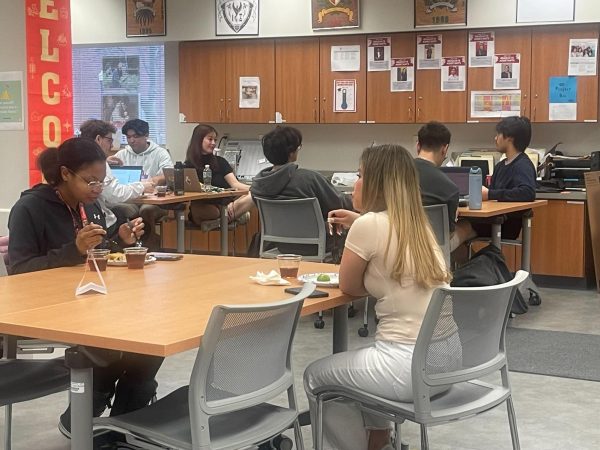Students reside in HSC hotel, lounges
September 6, 2005
About 60 students were assigned temporary living areas because of overbooked residence halls this semester.
Freshman biochemistry major Ronald Peter, along with about 60 other students, began the semester living in the Holmes Student Center.
In addition to the HSC hotel, 15 students live in both the Lincoln and Douglas lounges, said Michael Stang, director of residential operations for Housing and Dining Services.
This generally happens every year during the fall semester, Stang said. With a capacity of 6,000, the residence halls hold about 3,000 freshmen this year.
“One of our objectives is to try to accommodate as many students as we possibly can,” Stang said.
Rather than turning students away, Housing and Dining accepts more applicants than it can fit, he said. Students are also made aware of their temporary assignments before moving to campus.
“We know there will be students who look like they are coming, but for whatever reason, don’t actually arrive on campus,” Stang said. “So, we spend the first week to 10 days contacting those students to see if they are still coming.”
If students decide not to live in the residence halls, their assignments can be canceled and then offered to other students in temporary assignments, Stang said.
There are about two students living in the HSC hotel, but they most likely moved out over the weekend, he said. As of Tuesday, about 25 students still will live in temporary assignments.
Peter, who previously lived in the HSC hotel, said he planned on living in Grant with a friend, but will now live with an assigned roommate.
“The hotel was nice, and I don’t mind the air conditioning,” Peter said. “It’s just being away from other students that’s the bad part.”
Housing and Dining pays a flat fee of $30 a night per room for each student living in the hotel, Stang said.
After students move out of their temporary assignments, they are assigned to new locations where space is available. If there are options available, students are given a choice as to what building they will live in and who they want as a roommate, Stang said.
“We try to make this as student-centered as we possibly can,” Stang said. “None of the options are ideal options, but it still makes more sense than turning those students away when we know that two or three weeks into the semester, there are going to be vacant spaces.”
This semester, if there are no available openings in the residence halls, students who live in the lounges will remain there until the end of the semester, Stang said. Students will be reassigned in the spring semester.













